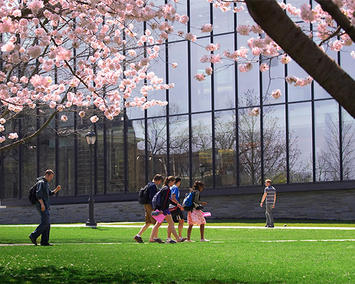
There’s no denying that the new spike in COVID-19 cases we are seeing is driven by “younger Americans.” Some states are re-closing bars and restaurants, or pausing other reopening measures. Dr. Anthony Fauci might have put it best when he told a Senate committee, “Bars: really not good, really not good.” But people are seeing the word “younger” and misreading it as “college kids.”
At best, that doesn’t tell the whole story. At worse, it’s an unfair indictment. Early in the pandemic, people mocked spring breakers on Florida beaches and a Penn State professor recently took to Esquire to complain about the idea of in-person classes in the fall because, “students being students will do what students have always done: congregate in packs, drink heavily, and comingle.” But cases are rising not just among Gen Z but also Americans in their 30s and 40s.
As a professor who has had the pleasure of working with thousands of students over the past decade, these denouncements are inappropriately critical of this new generation coming of age into the world.
While it is absolutely true that professors and members of the higher education community should worry about school campuses reopening because traditional teaching and social distancing will be truly impossible and due to the inevitability that some students will make foolish decisions which could spread coronavirus, the fact of the matter is that our Gen Z students are well aware of the dangers of COVID-19 and are not looking to engage in dangerous behaviors.
New data from the AEI Survey on COVID-19 and American Life makes it abundantly clear that Gen Z—those Americans born after 1996, is the cohort presenting in college, and constituting 24 million eligible voters come this fall—has been regularly mischaracterized as selfish, disconnected from and unconcerned with the pandemic reality; this is simply not a fair representation. When asked in June 2020 whether or not the worst of the COVID-19 pandemic is behind us or whether the worst is yet to come, 54 percent of Gen Z respondents said that the worst is yet to come, and they were the most pessimistic age cohort in the nation. (Just more than a third of those in the “Silent Generation” though that the worst is yet to come.)
Relatedly, 41 percent of those in Gen Z personally knew someone who has contracted COVID. This is close to the national average, so this is not a situation where younger, college age Americans are simply unaware of the damage the virus has caused so many. Further, 50 percent of Gen Z was worried about the possibility that they themselves or someone in their households might contract the coronavirus. While this figure is lower than the 64 percent figure for those in Gen X or the 61 percent of boomers who were worried, it remains a significant number.
Read the rest of this piece at The Dispatch.
Samuel J. Abrams is professor of politics at Sarah Lawrence College and a visiting scholar at the American Enterprise Institute.
Photo credit: Lafayette College via Flickr under CC 2.0 License.












